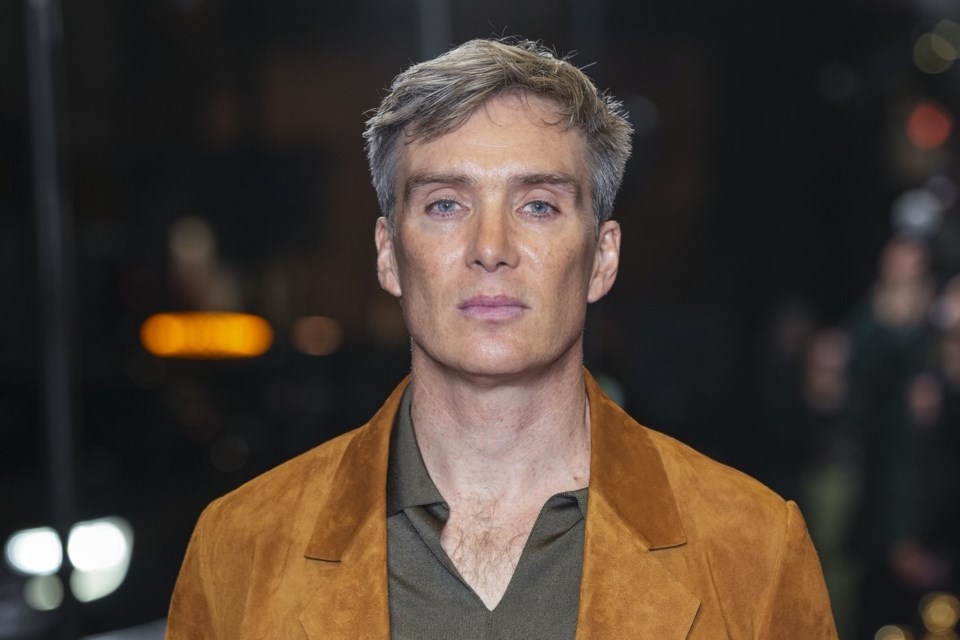didn’t read looking for a film to do. He was simply a fan of the author, Claire Keegan.
Her story, nominated for the Booker Prize, was a work of historical fiction about the and an ordinary man with repressed trauma who can’t force himself to look away over Christmas in 1985. The beauty of the prose and complexities of the themes lingered in Murphy’s mind. The Irish actor had also been thinking about starting his own production company. Miraculously, the rights were available.
As a nod to the film, opening in North American theaters on Friday, Murphy and his producing partner Alan Moloney named their company Big Things Films.
“We were like, if you call it Small Things Films, it would show a real lack of ambition,” Murphy said with a little laugh. “We thought better call it Big Things Films.”
“Small Things Like These” was made after but , which Murphy is still processing. Work is keeping him busy, though. His company already has another film in post-production, “Steve,” based on Max Porter’s novel “Shy.” And in September, he started filming the “Peaky Blinders” movie.
Murphy spoke to The Associated Press, before heading off to “Peaky Blinders,” about being a “serial re-collaborator,” the humbling and passive experience of winning the Oscar and pitching the film during a night shoot on “Oppenheimer.” Remarks have been edited for clarity and brevity.
AP: What made you want to see Claire’s book as a film?
MURPHY: It’s a seemingly simple story, but it’s actually incredibly complex the way it talks about society and complicity and shame and guilt and secrecy and fear and all those things. I felt like it had a lot to offer audiences.
AP: And as an actor, what opportunities did you see with your character?
MURPHY: It’s a male protagonist written by a woman, but it’s a story about women. That was quite interesting and unconventional. And the story really begins when the film ends. The real drama happens afterwards. And I think that’s just so unconventional and quite radical. The reason Bill is the man that he is, is because of what happened to him as a child and this act of charity that his mother experienced. And then these awful acts of cruelty that these other girls are experiencing — that’s what’s bringing him to this place in his life.
Claire had actually said in a podcast, someone said “oh it’s such an heroic act” and she said “no, he’s not a hero, he’s just someone who's having a nervous breakdown.” I thought that was really smart. And that’s kind of how I tried to play it.
It all comes back, as it tends to with men, in middle age. They begin to really sense their mortality and they have kids of their own. That’s when it all seems to come crashing down on them. And it’s so beautifully observed by Claire and Enda (Walsh).
AP: There are a lot of people involved in this film that you’ve worked with before, from the director, Tim Mielants (“Peaky Blinders”) to your “Disco Pigs” friends (playwright Enda Walsh and actor Eileen Walsh, who plays Bill’s wife). Why did you call on them?
MURPHY: I’m a kind of a serial re-collaborator. I just love working with people again. And I really firmly believe you got the best work from trust and from friendship. Enda I’ve worked with in a theater like four or five times and, and he’s just generally brilliant. I knew that he loved Claire’s book and that he would understand that world. And Eileen, it’s very hard to act 20 years of history, but when you have 28 years of history, you get it for free. She’s just a phenomenally powerful actor. She can kind of do anything.
AP: Matt Damon also is a producer though Artists Equity. How did that come about?
MURPHY: My producing partner was working with Matt on the U2 documentary about Sarajevo, and I was working with Matt on “Oppenheimer.” It was a pincer movement. I remember it was like a night shoot in the desert somewhere, and we were waiting for the rain to pass or the lights to be fixed. And he was telling me about . I said well, I happen to have this script, and I gave it to him. He’s got such great taste. He’s such a great filmmaker and actor, just a legend and just a lovely human being. He just really understands these sorts of stories. And immediately he said, yeah, we’re on.
AP: Do you feel like the and somehow helped this film get more interest from U.S. distributors?
MURPHY: I’m not aware of it, really, because it feels so brand new and so fresh. You know, it’s very hard to kind of speak about it because it was a hugely humbling and almost passive experience, because you don’t really have any control over other people voting on the work that you did. But if it allows us to tell the sorts of stories that I’d like to tell, which have a point of view, which have something to say, then I’ll take it.
Lindsey Bahr, The Associated Press


